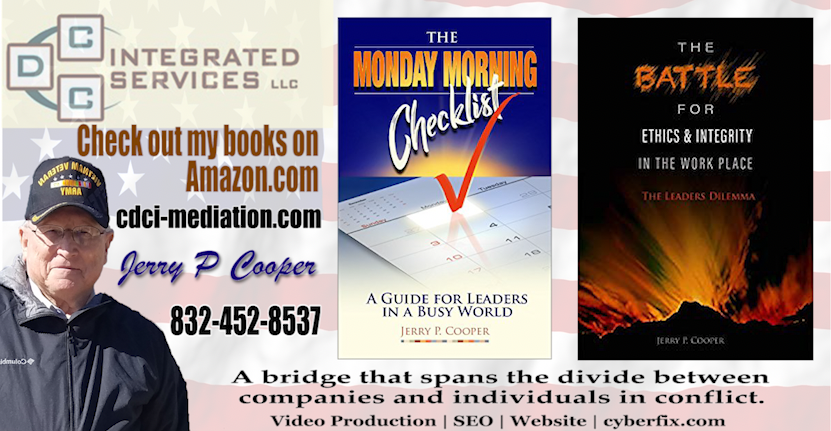Volume 5 | Issue 3
Putting it in contextA message from CDC Integrated Services, LLC
The Truth about Negotiation
All negotiations have one truth. The balance of power is never equal. Most people know that when they decide to buy a car or perhaps a new HVAC system for their house, they need to plan and learn as much as they can. They know to go in that they will be at a disadvantage, and their goal is to make that disadvantage as small as possible.
People responsible for negotiating on behalf of companies learn this reality early and quickly, and an essential part of their job is to neutralize any disadvantages that exist. However more skilled or experienced the professional negotiator might be, he or she often gets it wrong as well. Both the inexperienced and the experienced negotiator often overreact to the imbalances that confront them. Knowing that they exist is not always enough to prevent an overreaction at the wrong moment. Overreaction inevitably creates additional problems.
The key to a win-win outcome is reasonableness. Actual reasonableness coupled with the appearance of reasonableness forms the foundation for any negotiation from a weaker position. It is critical for those on the “weaker” side to have more options on the table; most of which must be structured to appear more valuable than they are. The weaker party is seen by the stronger party to be giving up a lot when the pressure is applied.
It is important also for the party with less power to wait for the right time to make the compromises that create the appearance they are conceding to the strength of the other party. Timing matters because the goal is to anticipate when the other party will begin to squeeze the side with less power. Yielding at a point in the negotiation that you think is right will often surprise the other side and disrupt their plan. By yielding at just the right time, the weaker party keeps control of the situation and sometimes can come out much better for it.
For this to work, the party with less power must have a plan and follow it all the way through the negotiation. As Robert Greene writes in his book, The 48 Laws of Power, “plan all the way to the end”. I am a firm believer that a written plan is fundamental to success in any negotiation, and my belief is such that the first chapter of my own book, The Monday Morning Checklist, A Guide for Experienced Leaders in a Busy World is about staying true to your plan.
Food for Thought: In business as in war, it is important to live to fight another day. If you do not hold the high ground, a compromise that allows you to better your position over time is preferable to fighting a battle you cannot win.
Are you facing a tricky situation with negotiation and want to have a conversation about it and want to talk it over?
Food for Thought: In business as in war, it is important to live to fight another day. If you do not hold the high ground, a compromise that allows you to better your position over time is preferable to fighting a battle you cannot win.

Get In Touch
(832)-452-8537
(281)-861-4947
jerry@cdci-mediation.com

